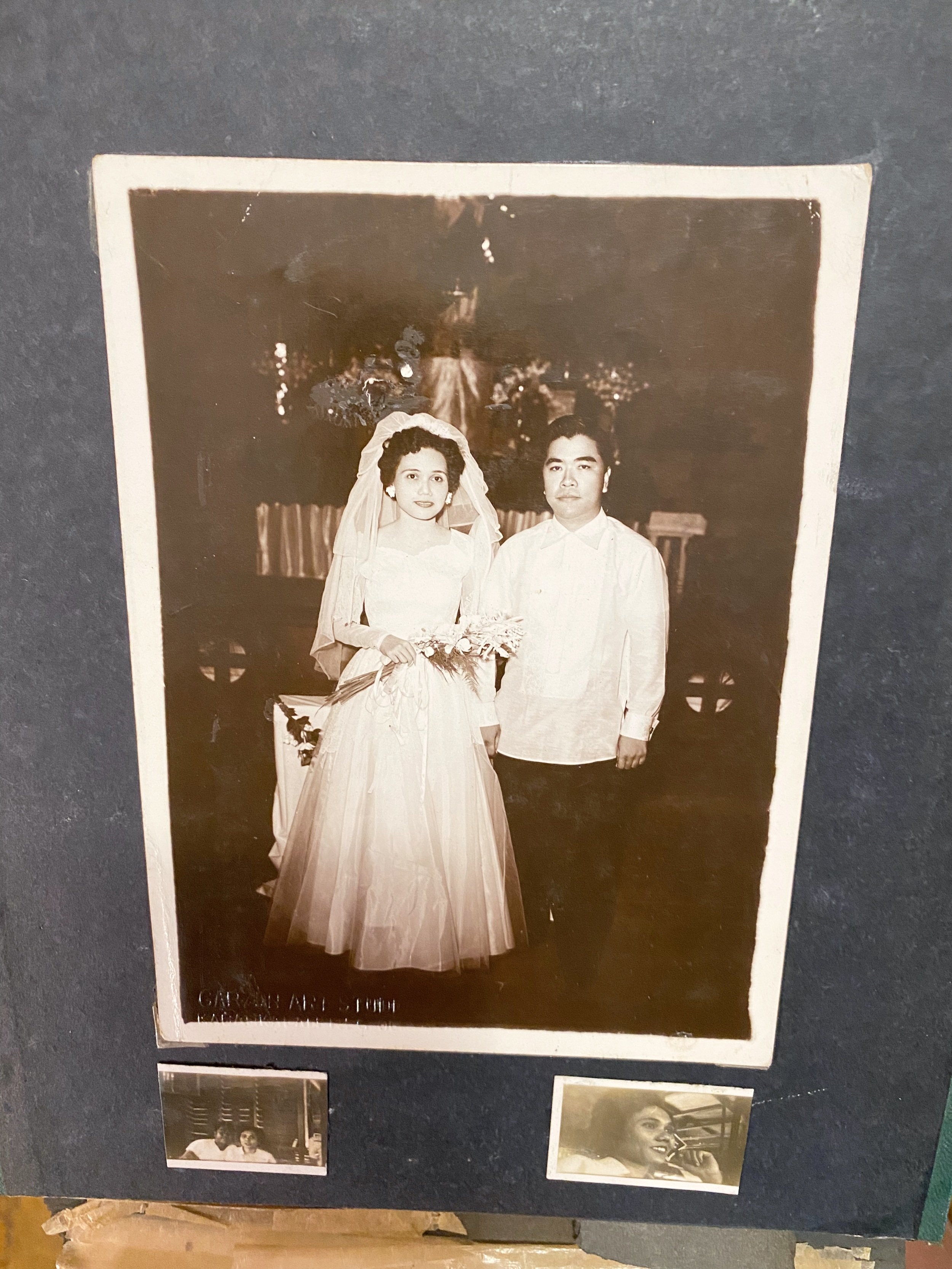
Cauayan

At the break of dawn in the Pacific, Dad would hurry to shore to secure freshly caught tuna, sometimes the rare migratory blue fin, and set off on his land rover to visit Mom. Before he’d officially begin his rounds as Negros island’s chief malariologist, he’d head up the hill to call on his first love at first sight and deliver his daily offering—not of frivolous flowers or of commonplace fruit, but of the most heartfelt romantic bucket of wriggling sea bounty lain at Mom’s feet.
Dad wasn’t exactly handsome but had attributes attractive to Mom I assume, for why marry three months after first meet-up—much to the chagrin of my paternal clan expecting years’-long engagements aimed to prove suitors’ good intentions—through serenading, chopping wood, the whole shebang—after which maybe, just maybe, the elders would proffer the woman’s hand to the man’s family. So three months? The big shot Isagani from the big city impressed Emma; the local teacher found him suave and erudite and remarkably generous: treating not just malaria but colds and fevers and refusing money for services; though happy to accept the live chickens and fresh vegetables the locals left at his office. Dad won hearts—though apparently not everyone’s that mattered.
In his capacity as adviser to the souls of the community, Father Rowe made his objections public and warned Emma to stay away from the evil medicine man from Manila. Clearly, Emma was not moved by church directive, for she continued to accept Isagani’s overtures. Not even after she was fired from her first teaching job.
For sure Dad carried a temper, which flared when driven to the edge of reason. I learned early that he abided by a very strict moral code handed down by family and the Catholic church, though modulated by a liberal American college education. But in 1954 Cauayan, he and Mom were up against the power behind Father Rowe’s word, which was law. Mom was admonished for shamelessly cavorting in public. The esteemed Jesuit priest had reported as much, punctuating with innuendo that my mother engaged in sinful sexual acts. Mom was no longer morally qualified to teach children, the school superintendent announced.
Persistent, Dad knocked on Mom’s locked door, armed with fresh catch before his daily rounds. Each morning, he listened intently as Mom expressed how confused and pained she felt at the prospect of not being able to teach again. How could she show her face to anyone? Each day, as he descended with his army of technicians on land rovers along remote villages, his thoughts meandering, unsettled because of Mom’s suffering.
Until one hot day, when he was off to another remote site in his rounds, Dad saw the priest alight from a car onto the same mountain road. He quickly beckoned his driver to stop and jumped out. "Whatever happens here, you didn’t see anything.” He turned to reiterate instructions to his chauffer, in vernacular. “Understood?"
Dad was 5’4” at his tallest I recall, and his nemesis he took by his ungodly collar in 1954 I imagine stood upwards to 6 feet. Nevertheless, by every account Mom’s protector took an impassioned leap. But beyond the oft-repeated story that Dad beat the revered town priest to a pulp, I struggle with the suggestion that a man of God was in love with my mother. All those Sunday Catholic catechism classes deeply inculcated the notion that romantic love is forbidden to the clergy, and most certainly not directed at—and forced upon—a layperson who does not love him back. Being human, conceivably the defeated priest couldn't help being smitten with Dad’s lovely provincial teacher. And having lost his love to another man—and a brown unequal at that—the holy Father uncloaked and wrested power as colonizer to strike back at his competition and impose his will on the island beauty.
Who was the more romantic man, for Christ’s sake?
